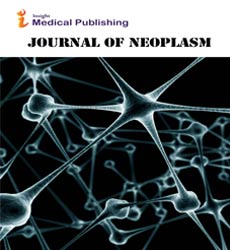Breast Cancer Screening Amid COVID-19: Assessing the Long-Term Effects
Jennifer Lucia
Department of Surgery, North-West University, Mmabatho, South Africa
Published Date: 2024-06-20DOI10.36648/2576-3903.9.2.73
Jennifer Lucia*
Department of Surgery, North-West University, Mmabatho, South Africa
- *Corresponding Author:
- Jennifer Lucia
Department of Surgery, North-West University, Mmabatho,
South Africa,
E-mail: Lucia_J@gmail.com
Received date: May 20, 2024, Manuscript No. IPJN-24-19396; Editor assigned date: May 23, 2024, PreQC No. IPJN-24-19396 (PQ); Reviewed date: June 06, 2024, QC No. IPJN-24-19396; Revised date: June 13, 2024, Manuscript No. IPJN-24-19396 (R); Published date: June 20, 2024, DOI: 10.36648/2576-3903.9.2.73
Citation: Lucia J (2024) Breast Cancer Screening Amid COVID-19: Assessing the Long-Term Effects. J Neoplasm Vol.9 No.2: 73.
Description
The COVID-19 pandemic has significantly disrupted various aspects of healthcare, with breast cancer screening being notably affected. This commentary delves into the implications of the pandemic on breast cancer screening practices, patient outcomes and the strategies implemented to mitigate these challenges. The COVID-19 pandemic caused widespread disruption to routine medical services, including breast cancer screening programs. Many healthcare facilities suspended nonurgent procedures to focus on COVID-19 patients, leading to a significant drop in mammography screenings. According to a study published in the Journal of the American Medical Association (JAMA), breast cancer screenings dropped by as much as 94% during the early months of the pandemic.
Socioeconomic disparities
Delays in screening mean that many cancers are diagnosed at a later, more advanced stage, which can adversely affect patient outcomes. The National Cancer Institute (NCI) estimated that the pandemic could lead to an additional 10,000 deaths from breast and colorectal cancer over the next decade due to delayed diagnoses. The delays and disruptions in breast cancer screening have also had a psychological impact on patients. The uncertainty and anxiety associated with delayed screenings and potential cancer diagnoses have been significant. Patients have reported increased levels of stress and anxiety, worrying about the potential progression of undiagnosed cancers. Mental health support has become an essential component of care for these patients during the pandemic. Underserved communities, including low-income populations and racial and ethnic minorities, have been disproportionately affected by the disruption in breast cancer screening services. These groups already face barriers to healthcare access and the pandemic has intensified these challenges. Efforts to address these disparities and ensure equitable access to screening services are critical. Despite the challenges, the healthcare system has shown resilience and adaptability. These measures include enhanced cleaning procedures, social distancing in waiting areas and the use of Personal Protective Equipment (PPE) by healthcare providers. Additionally, some centers have adopted innovative approaches such as mobile mammography units to reach underserved populations and minimize COVID-19 exposure risks.
Future considerations
The pandemic has accelerated the adoption of telemedicine and virtual consultations. While mammography cannot be performed remotely, telemedicine has facilitated pre-screening consultations and follow-up appointments. This approach has helped reduce the number of in-person visits, minimizing the risk of COVID-19 exposure for both patients and healthcare providers. Telemedicine has also provided a platform for patients to discuss their concerns and receive guidance on the appropriate timing for screenings. Public health campaigns have played a vital role in encouraging women to resume breast cancer screenings. Organizations such as the American Cancer Society (ACS) and the Centers for Disease Control and Prevention (CDC) have launched initiatives to raise awareness about the importance of regular screenings, even during the pandemic. These campaigns emphasize that healthcare facilities are taking necessary precautions to ensure patient safety. The COVID-19 pandemic has underscored the need for a more resilient healthcare system that can adapt to unexpected challenges. Future considerations for breast cancer screening should include the development of contingency plans for maintaining screening services during public health emergencies. Additionally, investments in telehealth infrastructure and mobile health units can enhance the accessibility and flexibility of screening programs. The COVID-19 pandemic has had a profound impact on breast cancer screening, highlighting the vulnerabilities in our healthcare system. The disruption of routine screenings has led to delays in diagnosis, increased patient anxiety and exacerbated healthcare disparities. However, the healthcare community's resilience and adaptability have also been evident, with the implementation of safety protocols, telemedicine and innovative screening approaches. Moving forward, it is essential to build on these adaptations to ensure that breast cancer screening services are robust and accessible, even in the face of future challenges.

Open Access Journals
- Aquaculture & Veterinary Science
- Chemistry & Chemical Sciences
- Clinical Sciences
- Engineering
- General Science
- Genetics & Molecular Biology
- Health Care & Nursing
- Immunology & Microbiology
- Materials Science
- Mathematics & Physics
- Medical Sciences
- Neurology & Psychiatry
- Oncology & Cancer Science
- Pharmaceutical Sciences
